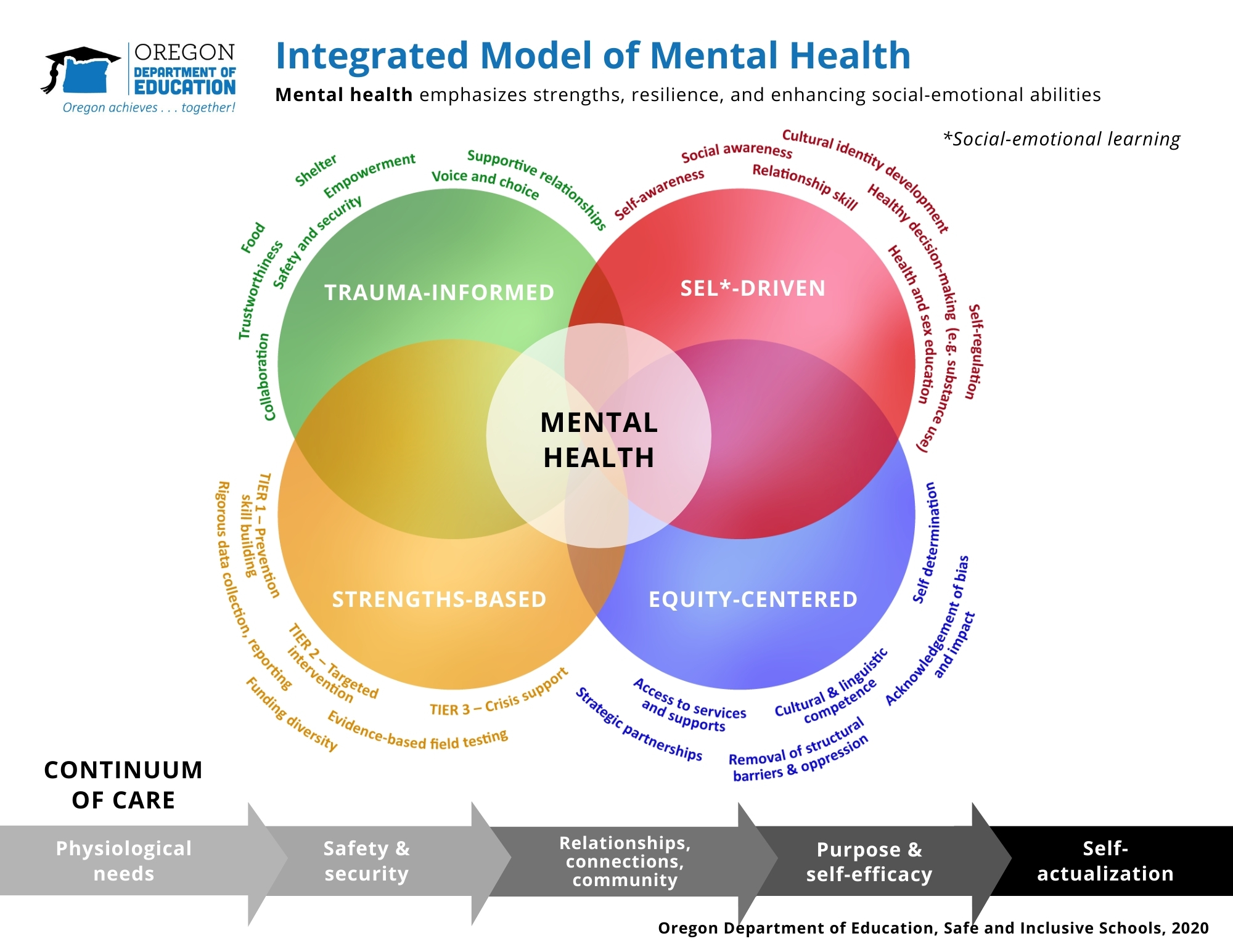Mental health encompasses emotional, social, cognitive, and behavioral functioning. It exists within a continuum of care that includes all domains of health and well-being, physical and emotional safety, security, social connection, identity, diversity and purpose. Mental health and overall health are cornerstones of education, essential for creating the conditions for students to learn, teachers to teach, and individuals to thrive.
ODE Mental Health Talking Points
Integrated Model of Mental Health Written Description
ODE’s Integrated Model of Mental Health helps to guide the agency’s work of health promotion and illness prevention, and provides a framework for supporting Oregon students, families, and school staff. Building upon the philosophy and values of health promotion and illness prevention, the model centers mental health and well-being at the intersection of four equally important and overlapping pillars of practice so that all health and mental health promotion, prevention, and intervention efforts:
- Are strengths-based
- Are trauma-informed
- Incorporate principles of social-emotional learning
- Are equity-centered.

Mental health and well-being emphasizes strengths, resilience, and enhancing social-emotional abilities. It rests at the intersection of the four pillars: strengths-based, trauma-informed, social-emotional learning (SEL)-driven, and equity-centered.
A strengths-based approach includes:
- Rigorous data collection and reporting
- Evidence-based field testing
- Funding diversity
- A multi-tiered system of support (MTSS), including: Tier 1: Prevention skill-building, Tier 2: Targeted intervention, Tier 3: Crisis support
A trauma-informed approach emphasizes:
- Attention to vital needs such as food and shelter
- Trustworthiness
- Empowerment
- Supportive relationships
- Collaboration
- Safety and security
- Voice and choice
An SEL-driven approach includes:
- Teaching SEL competencies such as cultural identity development, self-regulation, social awareness, healthy decision-making, self-awareness, and relationship skills
- Incorporating SEL principles into health and sex education
An equity-centered approach emphasizes:
- Removal of structural barriers and oppression
- Acknowledgement of bias and impact
- Cultural and linguistic competence
- Self-determination
- Access to services and supports
- Strategic partnerships
All mental health-related services exist on a continuum of care which addresses physiological needs; safety and security; relationships, connection, and community; purpose and self-efficacy; and self-actualization.
Contacts
Arden Robinette - Mental Health Project Coordinator, Office of the Director
Jeremy Hogeweide - Mental Health Administrative Specialist, Office of the Director